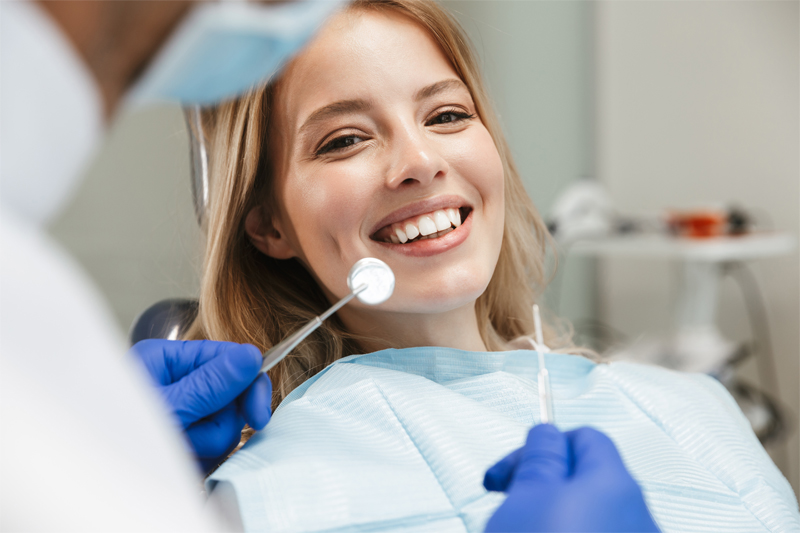
Don’t Brush Aggressively
Some think that scraping and not brushing their teeth is a more effective way of removing plaque and stains. Trying to scrape off unwanted particles from your teeth and gums using a toothbrush will only put your oral health at risk.
A light touch from the toothbrush while using proper brushing technique should suffice to help remove unwanted debris from your teeth and gums. Use small circular motions while taking care of the different areas of the mouth.
Remember, don’t just brush the front of your teeth, as you should also use your toothbrush at the back of the teeth. Also, brush your tongue using a tongue scraper or the back of your toothbrush. This entire process shouldn’t take more than a few minutes to accomplish.
Even if you are practicing proper brushing techniques, some signs of an unhealthy oral cavity may remain. Having said that, search the Internet for reliable dental experts in your area. For instance, you can check out Washingtonperio.com in that regard.
Floss Correctly
Like brushing, it’s vital to practice proper flossing technique. It can be tempting to try and remove food byproducts stuck between your teeth through aggressive flossing. But, again, using aggression will only lead to bleeding gums and other oral health issues.
Instead, begin by breaking about 18 inches of floss from its container. Then, hold the floss between your thumbs and forefingers. Ensure that you wind the floss in those fingers securely.
Guide the floss in the gaps of your teeth with a gentle rubbing gesture. Once the floss reaches the gums, curve it like your producing a C shape. Now, slide the gloss gently as you bring it back to the point of entry. Repeat this process for the rest of your teeth.
Practice proper flossing technique, and you should be on the way to flaunting better dental health. Also, don’t skip flossing just because you already brushed your teeth. Some food byproducts can remain in the teeth and gums even after brushing your teeth. Flossing can help eliminate any debris for a cleaner, healthier oral cavity.
Eat Teeth-Friendly Food
Perhaps, you already know the saying, “You are what you eat.” That adage might be particularly true for your teeth and gums.
Eat plenty of starch- or sugar-rich foods, and harmful bacteria can infest your oral cavity, causing dental concerns, like:
- Halitosis (bad breath)
- Tooth decay
- Cavities
- Gum disease
But, you can fill your diet with food options that can benefit your oral cavity. Some of these selections include:
- Dairy Products
Dairy products, particularly cheese, milk, and yogurt, are ideal for building healthy teeth. These options are low in sugar and high in calcium. Furthermore, some dairy products contain casein, which is a protein that helps fortify tooth enamel.
- Crunchy Vegetables
Many vegetables are excellent for maintaining teeth and gum health. But, opt to eat crunchy vegetables for that added dental health boost.Crunchy vegetables, such as carrots and celery, stimulate the flow of saliva. Saliva can help remove harmful bacteria and food particles from the mouth. Also, fresh, crunchy vegetables tend to have essential nutrients that can massively benefit the mouth.
- Apples
An apple a day might not keep the dentist away, but this particular fruit can help reduce expensive emergency dental costs. Apples, along with other hard, fibrous fruits, can assist in cleaning your teeth and gums.Like eating crunchy vegetables, eating apples helps increase salivation. This process can also help neutralize harmful acids in the mouth, which would otherwise lead to tooth decay and gum disease.
Aside from eating the right foods for better dental health, don’t forget to drink the recommended amount of water per day. Drinking water, especially if it has fluoride, can help maintain the excellent well-being of your teeth.
Conclusion
In summary, make sure to use proper teeth brushing and flossing techniques to ensure excellent dental health. Next, fill your daily plate with foods like apples, celery, and dairy products for stronger, healthier-looking teeth. But, if some symptoms of poor oral health continue even when you practice proper teeth- and gum-cleaning techniques, visit your dentist immediately. The dental expert can tell if you have an underlying health concern that affects your oral health negatively.
Comments
comments